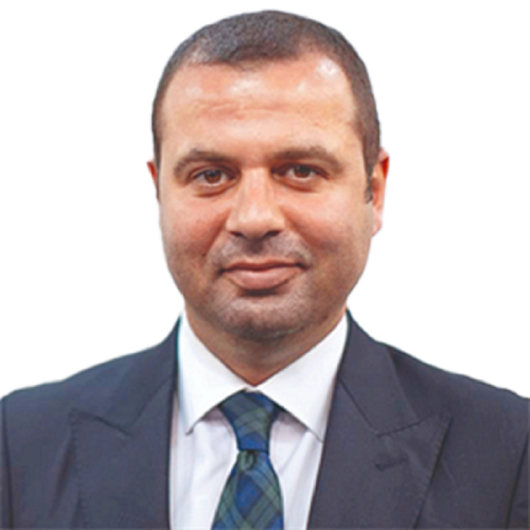Kirkuk is in turmoil. In Syria's Deir ez-Zor, Arabs have risen against the PKK terrorist organization. Protests against Assad have taken place in Syria. We are facing a complex equation in the region with many unknowns. However, it's possible to piece together parts of the puzzle. Let's begin.
Background 1: Türkiye, the United States, and Iran have revealed their regional calculations and played their cards. Foreign Minister Hakan Fidan's historic visit to Iraq should be seen in this context. Ankara has conveyed its sensitivity to counterterrorism to all parties in Iraq. The message, "We will stand by our friends. Those who collaborate with our enemies will bear the cost," has been strongly emphasized.
Background 2: In the recent past, when the Ankara-Damascus dialogue gained momentum, the focus was on the territorial integrity of Syria. The discussion revolved around the removal of the terrorist organization PKK - and therefore, the United States - from east of the Euphrates. Ankara suggested, "You clean the east of the Euphrates, and we'll take care of the west." (President Assad, who is asking for the withdrawal of Turkish troops from Syria, is not on board with this.)
The United States responded to this agreement with a different move. Senior commanders visited terrorist camps in Syria. Agreements were made regarding transit between northern Iraq and northern Syria. The U.S. aimed to take control of northern Syria and Iraq, establish a permanent presence in the region, and cut off the Tehran-Damascus logistics line. In this process, the U.S.-PKK-Talabani axis was formed in the region. While implementing this strategy, the U.S. also attempted to gather non-Kurdish elements under the umbrella of the SDF (controlled by the PKK) in Syria. Ankara perceives the U.S. game plan and regional calculations in this way.
Background 3: Azerbaijan's victory in Nagorno-Karabakh is a strategic loss for Iran. Tehran aims to balance Ankara's Iraq and Syria policies to compensate for this loss. In Syria, it aims for the withdrawal of the U.S. from the region and the containment of Türkiye. (Therefore, whatever is happening in Kirkuk can be seen as a continuation of the Karabakh issue.) After the Ukraine war, its partnership with Russia deepened. It saw the U.S. effort to cut the logistics lines to Damascus and aimed to prevent it by deploying forces to Deir ez-Zor. Damascus and Tehran's primary goal is to capture the oil-rich Deir ez-Zor. Tensions were expected here. I have previously written about this.
Background 4: Terrorism has multiple plans, all focused on corridors. The organization wants to preserve the gains it achieved under U.S. patronage. The income from Deir ez-Zor does not go into the pockets of the local population but into the coffers of terrorist barons. The pinpoint operations by the Turkish military and intelligence against terrorist leaders are hurting the organization. While the organization seeks protection from the U.S., this has not materialized, leading to problems. In order to sustain its presence, the organization is working with the U.S. in Syria and with both the U.S. and Iran in Iraq. The PKK has lost 90% of its bases in northern Iraq due to successful Turkish operations. It is currently in tension with Barzani's Peshmerga for new bases. In northern Iraq, Barzani is in one camp, while the PKK, Iran, Talabani, and the U.S. are in the other.
The situation is more or less like this. Now, what are the implications?
Implication 1: After the Barzani Peshmerga reached an agreement with the Baghdad government and wanted to return to their headquarters in Kirkuk in 2017, things got messy. Türkiye stands behind its Turkmen kin. The danger in Kirkuk is the influence of the Hashd al-Shaabi (backed by Iran) and the presence of the PKK. What's happening in Kirkuk could be seen as a precursor to what will happen in the near future. Iran has given an ultimatum to the Barzani administration, demanding the removal of anti-Iran Kurdish groups from the border region by September 19, threatening a military operation otherwise. Iran's intervention in northern Iraq could shift the balance against Türkiye. We need to follow this process closely.
Implication 2: Previously, Arab tribes in Deir ez-Zor, who had been operating under the auspices of the SDF/PKK with U.S. support, revolted against the PKK. While the U.S. declared its support for the terrorist organization, it refrained from intervening this time, probably to maintain good relations with the Arab tribes it had previously bombed Wagner forces in the same region. For now, the U.S. is playing the role of mediator. The U.S. side believes that the Damascus-Tehran axis incited the Arab tribes. Ankara is supporting the Arab tribes who have risen against the terrorist organization. President Erdogan described the uprising as a "dignified struggle for honor." Hakan Fidan stated, "The clashes in Deir ez-Zor are just the beginning."
All of these events indicate a disruption of the status quo in the region and the beginning of tectonic movements. Those wondering what Ankara will do can take another look at Background 1.




















